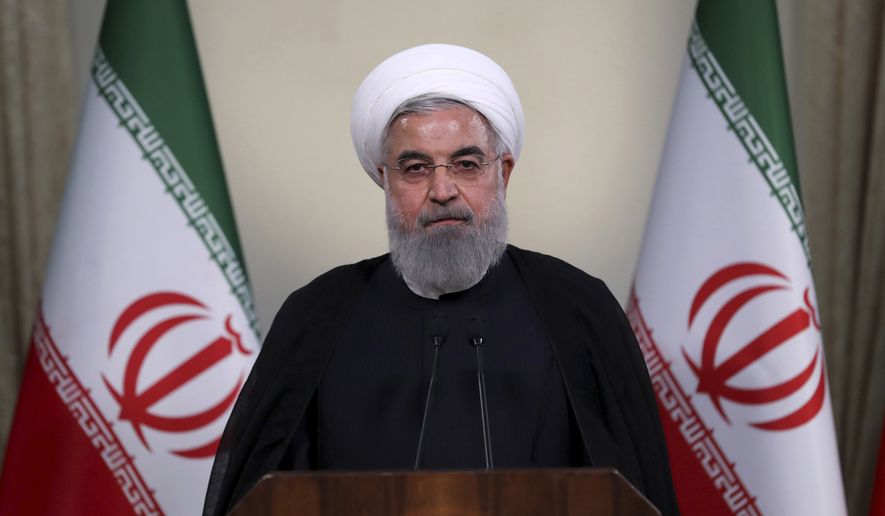Iranian President Hassan Rouhani has begun a three-day trip to Western Europe Monday in a diplomatic scramble by Tehran to rally support for the collapsing 2015 nuclear deal, which the United States left in May.
Mr. Rouhani, along with Iran’s Foreign Minister Mohammad Javad Zarif, are scheduled to meet with leaders from Switzerland and Austria, which took over the rotating European Union presidency on July 1.
On Monday before boarding his flight in Tehran, Mr. Rouhani told Iranian state TV that the trip offered an “opportunity to talk about the future of the (nuclear) agreement.”
He said he expects European officials to unveil a package of measures aimed at preserving the accord, which President Trump unilaterally pulled out of two months ago, the state-run Mehr news agency reported.
The U.S. took the move despite opposition from the deal’s other signatories. China, France, Germany, Britain and Russia — along with the European Union — have continued to back the agreement.
Since the U.S. withdrawal, Washington has begun to reinstate economic sanctions against Tehran and warned other nations that they will face penalties unless they cease doing business with Iran.
Over the weekend in Paris, Mr. Trump’s lawyer Rudolph W. Giuliani strongly criticized European efforts to remain in the deal. Mr. Giuliani delivered a speech at the annual meeting of the Iranian exile group the Mujahedeen-e-Khalq, which advocates for regime change in Iran.
“I can’t figure it out why leaders of Western democracies want to prop up the agreement, he said, adding that “when the greatest economic power stops doing business with you, then you collapse … and the sanctions will become greater, greater and greater.”
A for Mr. Rouhani, he is scheduled to visit Switzerland Monday and Tuesday, and speak with President Alain Berset, who has been tasked with raising U.S. and Saudi Arabian interests with Tehran, according to reports.
On Wednesday, Mr. Rouhani will meet with his Austrian counterpart, President Alexander Van der Bellen, and Chancellor Sebastian Kurz in Vienna, according to Austrian news agency APA. He is scheduled to discuss Iran’s role in the Middle East, amid Western accusations that Tehran pursues a strategy of actively destabilizing the region.
The International Atomic Energy Agency (IAEA), the United Nations body that monitors Iran’s compliance with the nuclear deal, is also based in Vienna.
• Dan Boylan can be reached at dboylan@washingtontimes.com.




Please read our comment policy before commenting.